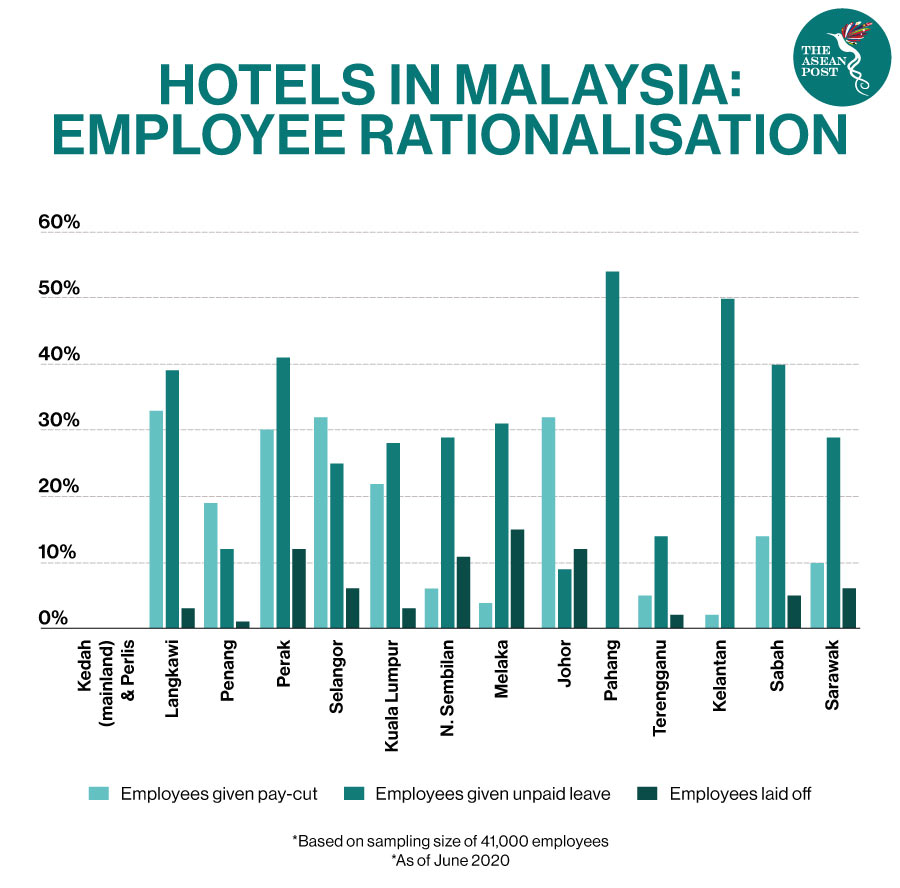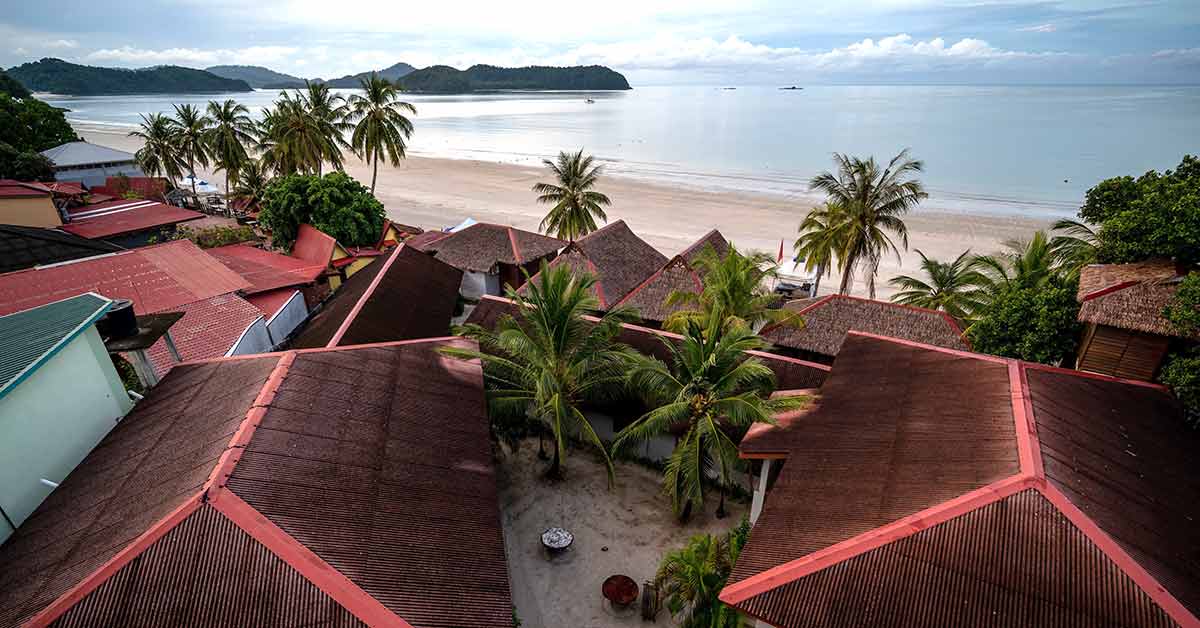A short clip released by a Malaysian news agency went viral recently, showcasing the reality of the country’s hotel industry during the pandemic.
In the video, a manager of a hotel in Malaysia’s popular tourist state of Penang was seen carrying a placard up and down the street with “RM3 Only” (US$0.74) written on it. Jeffrey Lim, the manager of Hotel Red Rock, alongside his staff, were selling food produced by the hotel for survival.
According to Lim, the hotel had to resort to other means of income in order to ensure that its employees would not lose their jobs. This follows the recent Movement Control Order (MCO) – or the country’s partial lockdown implemented early this year amid a rise in coronavirus cases.
Therefore, the hotel’s staff had to start selling dishes cooked by their chefs – such as chicken rice, fried rice, and more – to earn some extra income.
At the time of writing, Malaysia has recorded 226,912 COVID-19 infections, with close to 50,000 still receiving treatment. The ASEAN member state has seen around 4,000 to over 5,000 daily new cases in recent weeks.
It was also recently announced that the MCO – which should have ended today – would be extended to 18 February as coronavirus cases continue to surge. Citizens on social media seem to be divided on the recent lockdown. Some are saying that it is needed to control the virus, while some argue that the MCO would cost more businesses to shut, thus affecting livelihoods more than they already have.
With people urged to stay indoors during the MCO, and interstate travel prohibited – the tourism industry, and hotel operators are suffering even more as they can only depend on the local market.
“Reviving it will take time, probably by next June only the situation will be stable. Whatever, we have to accept the situation that hotels’ income is dropping,” said Haziz Hassan, chairman of the Malaysian Association of Hotels (MAH) in the state of Negeri Sembilan. This was in reference to the third wave in Malaysia which started last October – just after the country was slowly easing restrictions.
“After the spike in COVID-19 cases, we will be affected again as there have been calls received to postpone or cancel bookings,” he said last year.
As of November 2020, a total of 204 tourism and hotel operators have closed their businesses since March last year due to the impact of the COVID-19 pandemic and enforcement of the first MCO.
“32 out of 109 entities from the hotel sector and 38 out of 95 tourism agencies were ordered to close by the courts or they closed voluntarily,” explained Nancy Shukri, Malaysia’s Tourism, Arts and Culture Minister.
The ministry said an estimated loss of RM100 billion (US$24.6 billion) will be incurred this year, while the hotel sector’s loss is estimated to be about RM6.5 billion (US$1.6 billion) with room occupancy averaging below 30 percent.
With little means of generating revenues, unfortunately, “hotels are turning to cost-management measures, including reducing manpower,” said Yap Lip Seng, chief executive officer of MAH.
“We have seen hotels cutting down on headcount just to stay afloat,” he added.

Reinvent Hotels
Hotels around the world have had to reinvent themselves and come up with creative ways to stay afloat. For example, in tourism-reliant Thailand, starting from October last year, a mandatory 14-day quarantine imposed on tourists can be served in luxury hotels. Deepak Ohri, CEO of Lebua Hotels & Resorts in the kingdom said that targeting luxury travellers who stay longer and spend more could reduce some of the losses in local tourism.
In Malaysia, hotel operators have also dived into other business activities in an effort to minimise losses, as seen in the situation with the aforementioned Hotel Red Rock in Malaysia’s island state of Penang.
Moreover, five-star hotel Mandarin Oriental in Malaysia’s capital city of Kuala Lumpur, located next to the iconic Petronas Twin Towers, is said to now offer door-to-door housekeeping services for those who live in the area.
The hotel confirmed to local media last July that it was planning to provide the service once it has managed to fine-tune its standard operating procedures (SOPs).
Some local hotels have been trying to stay afloat by promoting their establishments as work spaces. Instead of work-from-home, guests can now opt for work-from-hotels.
"I think the idea is great as many of us are bored of working from home and we need to get rejuvenated. A change of environment will definitely boost productivity," said shipping company manager Edmund Teoh in November, who was working from home for five months.
Shaharuddin M Saaid, executive director of the Malaysian Association of Hotel Owners (MAHO) said earlier this year that hotel associations will continue to extend and give necessary assistance to hotels, while working with the government.
“The government must look at and consider other costs which hotels have to bear monthly and periodically when they have very poor or no business and revenue due to the pandemic. We have asked for discounts for electricity, other bills and deferment,” he noted.
It was also reported that recovery in the tourism segment is only expected in 2023 or by the end of 2022 at the earliest.
Related Articles:
